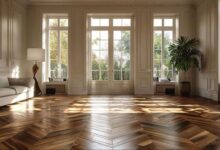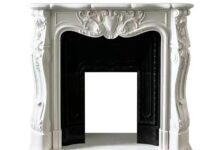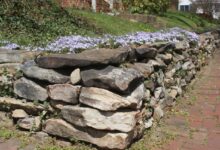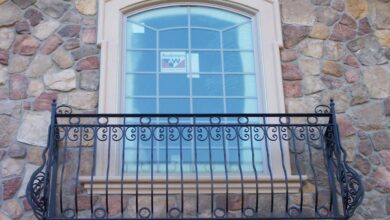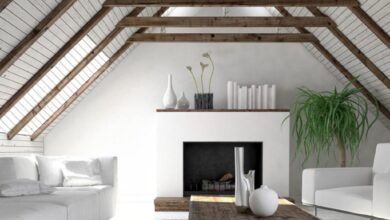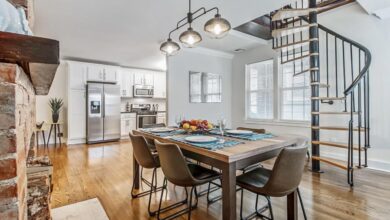Buying a House in France A Comprehensive Guide
Buying a house in France is a dream for many, offering a chance to embrace a different lifestyle and culture. This guide navigates the complexities of purchasing property in France, from finding the perfect property and securing financing to understanding the legal processes and cultural nuances. We’ll explore various property types, financing options, and the crucial role of the notaire, providing a comprehensive overview to help you make informed decisions.
Whether you envision a charming countryside cottage or a chic city apartment, this guide covers the essential steps, potential challenges, and rewarding aspects of owning a piece of French real estate. We’ll delve into the financial considerations, including mortgages, taxes, and fees, equipping you with the knowledge to budget effectively. Furthermore, we’ll address the practicalities of relocation, including navigating visa requirements and integrating into French society.
Finding the Right Property: Buying A House In France

Source: ytimg.com
Buying a property in France is a significant undertaking, but the reward of owning a piece of French life is considerable. The process involves navigating various property types, understanding the market in different regions, and employing effective search strategies. This section will guide you through these key aspects.
Types of French Properties
France offers a diverse range of properties, catering to various budgets and lifestyles. From charming apartments to grand chateaux, the options are extensive. The following table provides a brief overview:
| Property Type | Typical Features | Average Price Range (€) | Location Examples |
|---|---|---|---|
| Apartment (Appartement) | Modern or traditional; varying sizes and amenities; often located in city centers or towns. | 80,000 – 500,000+ | Paris, Lyon, Bordeaux, Nice |
| House (Maison) | Detached or semi-detached; gardens or courtyards; range from small cottages to larger family homes. | 150,000 – 1,000,000+ | Provence, Dordogne, Brittany, Loire Valley |
| Château | Historic manor houses; extensive grounds; often require significant renovation. | 500,000 – 10,000,000+ | Loire Valley, Burgundy, Aquitaine |
| Farmhouse (Ferme) | Often requiring renovation; typically in rural areas; may include land and outbuildings. | 100,000 – 750,000+ | Normandy, Southwest France, Auvergne |
Searching for Properties
Finding the right property requires a multifaceted approach. Online portals provide a broad overview of available properties, while working with a real estate agent offers personalized service and local expertise.Online portals such as SeLoger, Leboncoin, and PAP offer extensive listings, allowing you to filter by criteria like location, price, and property type. These sites often include virtual tours and detailed descriptions.
However, relying solely on online portals might limit your exposure to properties not yet publicly listed.Real estate agents (agents immobiliers) possess in-depth local knowledge and can provide valuable insights into the market. They can negotiate on your behalf, handle paperwork, and guide you through the legal processes. While their services come at a cost (typically paid by the seller), their expertise can be invaluable, especially for first-time buyers.
Buying a house in France can be a complex process, requiring careful planning and research. Understanding the intricacies of the French property market is key, much like understanding the sophisticated Sistem informasi manajemen Pertamina Patra Niaga untuk SPBU is crucial for efficient fuel distribution. Similarly, navigating French bureaucracy requires thorough preparation to ensure a smooth transaction and successful home purchase.
Regional Considerations
The price and availability of properties vary significantly across different regions of France. Buying in a bustling city like Paris will naturally command a higher price than purchasing a property in the quieter French countryside.Buying in the countryside often means lower property prices but may require more renovation and could present challenges regarding access to amenities and transportation. Popular regions like Provence and the Dordogne are desirable but also highly competitive, driving up prices.
Coastal areas also tend to be more expensive than inland locations. Regions like Brittany or the Loire Valley offer a balance between affordability and a desirable lifestyle, though prices are increasing in these areas too. Careful consideration of your lifestyle preferences and budget is crucial when choosing a region.
Financing Your Purchase
Securing financing for a property purchase in France, especially as a foreign buyer, requires careful planning and understanding of the available options. The French mortgage market differs from many others, offering a range of products with varying terms and conditions. Navigating this landscape successfully hinges on thorough research and preparation.
Buying a house in France can be a complex process, requiring careful planning and attention to detail. One thing you might need to consider, especially if you’re renovating, is reliable fuel delivery; you might find yourself needing to track your shipments, just like you would with Pertamina Patra Niaga in Indonesia, using a service like Cara melacak pengiriman BBM Pertamina Patra Niaga (though obviously a different company).
Once you’ve sorted out logistics, you can focus on the exciting aspects of settling into your new French home.
Mortgage Options for Foreign Buyers
French banks are generally receptive to lending to foreign nationals, but the process may be more rigorous than for resident buyers. Typically, you’ll find two main types of mortgages: fixed-rate and variable-rate mortgages. Fixed-rate mortgages offer predictable monthly payments, protecting you from interest rate fluctuations. Variable-rate mortgages, on the other hand, offer potentially lower initial interest rates but carry the risk of increased payments if rates rise.
The choice depends on your risk tolerance and financial projections. Additionally, some banks offer mortgages specifically designed for non-residents, often requiring a larger down payment or additional documentation.
Required Documentation and Procedures
Obtaining a mortgage in France involves a significant amount of paperwork. Banks typically request proof of income, assets, and identity. This includes tax returns, payslips, bank statements, and a copy of your passport or national ID. You’ll also need to provide details about the property you intend to purchase, including a formal offer to purchase (compromis de vente) and a property valuation report.
The application process can take several weeks, even months, so it’s crucial to start early. A strong credit history is essential, and a good relationship with a French bank or mortgage broker can streamline the process considerably. Many foreign buyers find it beneficial to work with a mortgage broker who specializes in assisting international clients.
Buying a house in France can be a thrilling but complex process, requiring careful research and planning. Understanding market trends is key, much like studying the marketing strategies of large corporations; for example, learning about Pertamina Patra Niaga’s approach to market share growth, as detailed in this article: Strategi pemasaran Pertamina Patra Niaga untuk meningkatkan pangsa pasar , can help you develop a similar focused approach to your property search.
Ultimately, finding the right French home requires a strategic and informed perspective.
Down Payment and Closing Costs
The typical down payment for a mortgage in France ranges from 20% to 40% of the property’s purchase price, although this can vary depending on the lender and your individual circumstances. A larger down payment often results in more favorable interest rates. Closing costs, known as “frais de notaire,” are usually around 7-8% of the purchase price and cover various administrative fees and taxes.
These costs are paid by the buyer and are typically handled by a notaire (a public official similar to a solicitor or notary). It’s crucial to factor these costs into your overall budget. For example, purchasing a €300,000 property could involve a €60,000 down payment (20%) and €24,000 in notary fees (8%).
Step-by-Step Guide to Financing a French Property Purchase
- Assess your financial situation: Determine your budget, including down payment capacity and monthly payment affordability.
- Find a mortgage broker (optional but recommended): A broker can help navigate the complexities of the French mortgage market and find the best options for your needs.
- Gather necessary documentation: Compile all required financial documents, including proof of income, assets, and identity.
- Apply for a mortgage: Submit your application to one or more banks or through your broker.
- Receive a mortgage offer: Once approved, review the terms and conditions carefully before accepting.
- Finalize the property purchase: Complete the necessary paperwork and transfer the funds once the mortgage is secured and the sale is finalized by the notaire.
Legal and Administrative Procedures
Buying property in France involves a more complex legal process than in some other countries. Understanding these procedures is crucial to a smooth and successful transaction. Failing to navigate these steps correctly can lead to significant delays and financial repercussions. This section Artikels the key legal and administrative aspects of purchasing property in France.
Buying a house in France can be a thrilling but complex process, requiring careful planning and research. However, securing the funds might involve a career change, perhaps considering a lucrative opportunity like those outlined in this article on career prospects at Pertamina Patra Niaga for chemical engineering graduates: Prospek karir di Pertamina Patra Niaga bagi lulusan teknik kimia.
Once your finances are sorted, you can fully focus on finding your dream French home.
The French Legal Process for Property Purchases
The French legal system places a strong emphasis on protecting the buyer’s interests. The process is generally overseen by a notaire, a public official who acts as a neutral intermediary, ensuring the legal validity of the transaction and safeguarding the rights of both the buyer and the seller. The process typically begins with the signing of a preliminary contract (compromis de vente or promesse de vente), which Artikels the terms of the sale.
This is followed by a period of due diligence, where the buyer investigates the property’s title, planning permissions, and any potential issues. Once all checks are complete, the final act of sale (acte authentique) is signed before the notaire, at which point ownership is officially transferred.
Buying a house in France can be a dream come true, but navigating the process requires careful planning. It’s a big financial commitment, so understanding local regulations is crucial. For example, consider the social responsibility initiatives in other contexts, like learning about the community support programs offered by companies such as Program CSR Pertamina Patra Niaga untuk masyarakat sekitar , which highlights the importance of community investment.
This kind of responsible engagement is equally important when considering a large purchase like a French home.
Key Documents in a French Property Purchase
Several key documents are essential throughout the buying process. The
Buying a house in France can be a dream come true, but the costs involved are significant. Even seemingly unrelated factors can influence your budget; for example, the global impact of rising fuel prices, as highlighted in this article on the economic effects of Pertamina Patra Niaga’s fuel price increases: Dampak kenaikan harga BBM Pertamina Patra Niaga terhadap ekonomi.
These broader economic shifts can indirectly affect property markets, impacting everything from construction costs to mortgage rates, making your French house hunt even more complex.
- compromis de vente* or
- promesse de vente* is the preliminary contract, a legally binding agreement outlining the purchase price, deposit, completion date, and other conditions. The
- acte authentique* is the final deed of sale, signed before the notaire, transferring ownership. Crucially, you will also need certified copies of your identification documents, proof of funds (to demonstrate you can afford the purchase), and potentially energy performance certificates (*Diagnostic de Performance Energétique* or DPE). The
- cadastral plan* (showing the property’s boundaries) and the
- title deeds* (*titre de propriété*) confirming the seller’s ownership are also vital. Furthermore, you might encounter various other documents related to property taxes, utilities, and any outstanding charges.
The Role of the Notaire
The notaire plays a central role in French property transactions. They are responsible for verifying the legal validity of the sale, preparing all necessary documentation, and ensuring the transfer of ownership is correctly registered. The notaire also calculates and collects the relevant taxes and fees associated with the transaction. Importantly, they act as an independent and impartial advisor, protecting both the buyer and seller from potential legal pitfalls.
Using a notaire is mandatory for property purchases in France. Their fees are typically included in the overall purchase costs and are calculated as a percentage of the property’s value.
Avoiding Common Legal Pitfalls
Several potential pitfalls can arise when buying property in France. Thorough due diligence is paramount to avoid problems. This includes checking the property’s title for any encumbrances (mortgages, liens, etc.), verifying the planning permissions, and ensuring all necessary permits are in place. It’s also crucial to understand French property law and regulations, especially concerning building codes and environmental issues.
Buying a house in France can be a thrilling yet complex process, requiring careful planning and research. It’s important to understand the local market and regulations, which can differ significantly from your home country. For example, consider the logistical challenges; even something as seemingly simple as fuel availability can impact your move, so staying informed on issues like the Indonesian fuel shortage, as detailed in Pertamina Patra Niaga’s response here , might help you anticipate potential disruptions to your relocation plans.
Ultimately, successful house hunting in France involves a comprehensive approach to all aspects of the move.
Engaging a qualified surveyor to conduct a thorough inspection of the property is highly recommended. Finally, seeking legal advice from a French lawyer specializing in property transactions can help prevent costly mistakes and ensure a smooth and successful purchase.
Taxes and Fees
Buying a property in France involves a range of taxes and fees, which can significantly impact the overall cost. Understanding these costs beforehand is crucial for effective budget planning and a smooth transaction. These charges vary depending on the property’s location, value, and the buyer’s circumstances. Foreign buyers, in particular, should be aware of the specific implications for them.
The French tax system concerning property purchases is complex. Several different taxes and fees are levied at various stages of the process, from the initial offer to the final registration of ownership. It’s advisable to seek professional advice from a notaire (French solicitor) and/or a tax advisor to ensure complete understanding and compliance.
Property Taxes Payable Upon Purchase, Buying a house in France
These are the primary taxes and fees associated with the actual purchase of the property. These are typically paid by the buyer, although the specifics can be negotiated as part of the sale agreement.
- Taxe de publicité foncière (TPF): This is a registration tax based on the property’s value. The rate varies depending on the type of property and its location. It’s a significant cost, often representing several percentage points of the purchase price.
- Taxe sur la valeur ajoutée (TVA): Value Added Tax, applicable to new properties or those undergoing significant renovations. The rate is currently 20%, although this may be subject to change. It’s added to the purchase price.
- Frais d’agence (Agency Fees): If you use a real estate agent, you’ll typically pay their fees, which are usually a percentage of the sale price. This varies but is often between 3% and 10%.
- Frais de notaire (Notaire’s Fees): The notaire’s fees cover their legal and administrative work, including drafting the sale contract and registering the property in your name. These fees are based on the property’s value and typically range from 7% to 8% for properties below €100,000, reducing to a lower percentage for higher-valued properties.
Ongoing Property Taxes
After purchasing the property, you’ll be responsible for ongoing property taxes. These are annual payments and contribute to local services and infrastructure.
- Taxe foncière (Property Tax): This annual tax is based on the property’s cadastral value (official assessed value) and is levied by the local municipality. The rate varies significantly depending on the location and services provided.
- Taxe d’habitation (Habitation Tax): This tax was abolished for most primary residences in 2023, however, it may still apply in certain situations, such as secondary homes or rented properties. It’s based on the property’s size and location.
Example Calculation
Let’s assume a hypothetical property purchase of €250,
000. Estimating the associated costs:
| Tax/Fee | Estimated Percentage/Amount | Estimated Cost (€) |
|---|---|---|
| TPF | 5% | 12,500 |
| Notaire’s Fees | 3% (assuming a higher value property) | 7,500 |
| Agency Fees | 5% | 12,500 |
| Total Purchase Costs (excluding property price) | 32,500 |
This is a simplified example. The actual costs will vary depending on numerous factors, including the specific location, type of property, and individual circumstances. It’s crucial to obtain precise figures from professionals involved in the transaction.
Practical Considerations
Buying a house in France is only half the battle; successfully moving and settling in requires careful planning and preparation. This section addresses the practical aspects of relocating to France, offering guidance on navigating administrative hurdles, understanding cultural nuances, and finding reliable local services.
Visas and Immigration
Relocating to France necessitates understanding French visa requirements. The specific visa needed depends on your nationality and the purpose of your stay. For long-term residency, you’ll likely need a visa categorized as a “long-stay visa,” often requiring proof of sufficient funds, health insurance, and accommodation (your newly purchased property could fulfill this requirement). It’s crucial to check the official website of the French embassy or consulate in your country for the most up-to-date information and application procedures.
Processing times can vary significantly, so begin the application process well in advance of your planned move. Failure to obtain the correct visa could result in significant delays and potential legal issues.
Language Barriers and Cultural Differences
While many French people, particularly in tourist areas, speak English, mastering at least basic French is invaluable for daily life. Everyday interactions, from shopping to accessing local services, will be smoother with even a rudimentary understanding of the language. Beyond language, understanding French cultural norms is also essential for a seamless integration. For instance, the pace of life is often slower than in some other countries, and direct communication might be perceived differently than in more overtly expressive cultures.
Taking a French language course before or after moving can significantly improve your experience.
Finding Local Service Providers
Finding reliable local service providers, such as plumbers or electricians, is crucial for maintaining your property. Word-of-mouth recommendations from neighbours or local businesses are often the most reliable. Online directories, such as those specific to your region, can also be helpful. Always request quotes from multiple providers before making a decision, and verify their credentials and insurance coverage.
Consider seeking recommendations from your notaire (notary) or other professionals involved in your property purchase; they often have established relationships with trusted local tradespeople.
Obtaining Utilities and Essential Services
Setting up essential services like electricity, gas, water, and internet requires contacting the relevant providers. EDF (Électricité de France) is the main electricity provider, while Engie often handles gas. Water and internet providers vary by region. You’ll likely need your property’s address and potentially other documentation, such as proof of ownership. Contacting these companies well in advance of your move is advisable to ensure a smooth transition.
There might be connection fees, so budget accordingly.
Post-Purchase Checklist
Successfully navigating the post-purchase phase involves completing several key tasks. This checklist provides a framework for a smooth transition:
- Register your property with the local tax office (cadastre).
- Inform your bank of your new address and update your accounts.
- Register with your local mairie (town hall) to obtain a resident’s card.
- Set up essential utilities (electricity, gas, water, internet).
- Find a reliable local doctor and other healthcare providers.
- Register your vehicle (if applicable).
- Open a French bank account.
This checklist is not exhaustive, but it highlights essential steps for a successful relocation. Remember that local regulations and procedures may vary, so consult with local authorities or professionals for specific guidance.
Lifestyle and Culture
Buying a house in France is about more than just bricks and mortar; it’s about embracing a distinct lifestyle and culture. Understanding the nuances of French life is crucial for a smooth transition and a fulfilling experience as a homeowner. This section explores key aspects of French culture relevant to homeowners, comparing them to other countries, and offering guidance on integrating into your new community.French life, particularly in rural areas, often revolves around a slower pace, a strong emphasis on community, and a deep appreciation for food and leisure.
Homeownership frequently reflects these values, with properties often reflecting generations of family history and local craftsmanship. This contrasts sharply with some North American approaches, where homeownership might be more focused on investment and rapid appreciation. In contrast, the French perspective often prioritizes quality of life and long-term enjoyment over purely financial gains.
French Homeownership Compared to Other Countries
The French approach to homeownership differs significantly from many other countries. For example, while many countries prioritize individualistic home design and rapid turnover, France often sees a greater emphasis on preserving architectural heritage and integrating new homes seamlessly into existing communities. This can mean stricter building regulations and a more involved planning process. In countries like the US, the emphasis is often on larger, more individualistic properties, whereas in France, even in suburban areas, properties tend to be smaller and more closely grouped, fostering a sense of community.
This difference is reflected in the social fabric of the community, where neighbourly relationships are often stronger and more established in France than in some other nations.
Social and Community Aspects of Living in a French Village or Town
Life in a French village or town often centers around local markets, boulangeries (bakeries), and community events. Strong neighbourly relationships are common, with residents often helping each other out and participating in local activities. This sense of community is a significant aspect of French culture and is often a key attraction for those relocating. Participation in local festivals, such as village fetes or wine harvests, is an integral part of this social fabric.
For example, a new homeowner might find themselves invited to a local gathering or offered assistance with a home improvement project by their neighbours. This level of community engagement is less prevalent in many larger cities and suburban areas in other countries.
Integrating into the Local Community
Successfully integrating into a French community requires effort and a willingness to learn. Learning basic French phrases is essential, even if your neighbours speak English. Taking the initiative to introduce yourself to your neighbours, participate in local events, and shop at local businesses are crucial steps. Joining a local club or association, based on your interests (gardening, hiking, etc.), can provide excellent opportunities to meet people and build relationships.
Showing respect for local customs and traditions is also vital. For example, attending a local church service (even if you aren’t religious) can be a good way to meet people and learn about local customs. Active participation in the community demonstrates a genuine desire to become a part of it, and this is generally well-received by French residents.
Last Recap
Purchasing a property in France is a significant undertaking, blending the excitement of a new adventure with the careful planning required for a major investment. This guide has aimed to provide a clear and comprehensive overview of the process, addressing the key aspects from property searching to settling in. Remember that seeking professional advice from real estate agents, legal professionals, and financial advisors is crucial throughout the journey.
With thorough preparation and a well-informed approach, the dream of owning a home in France can become a fulfilling reality.
Essential FAQs
What language skills are essential for buying a house in France?
While some agents speak English, basic French is highly beneficial for navigating everyday tasks and interacting with local professionals.
How long does the entire buying process typically take?
The process can take several months, sometimes longer, depending on factors like property type, financing, and legal complexities.
Are there any specific insurance requirements for property owners in France?
Yes, homeowner’s insurance (assurance habitation) is mandatory in France. You’ll need to obtain a policy before completing the purchase.
What are the implications of buying a property in a rural versus urban area?
Rural properties may offer more space and tranquility but potentially limited amenities. Urban properties offer convenience but may be more expensive and less spacious.
Can I use a French bank account to facilitate the purchase?
Opening a French bank account is recommended to streamline financial transactions and manage ongoing expenses.
